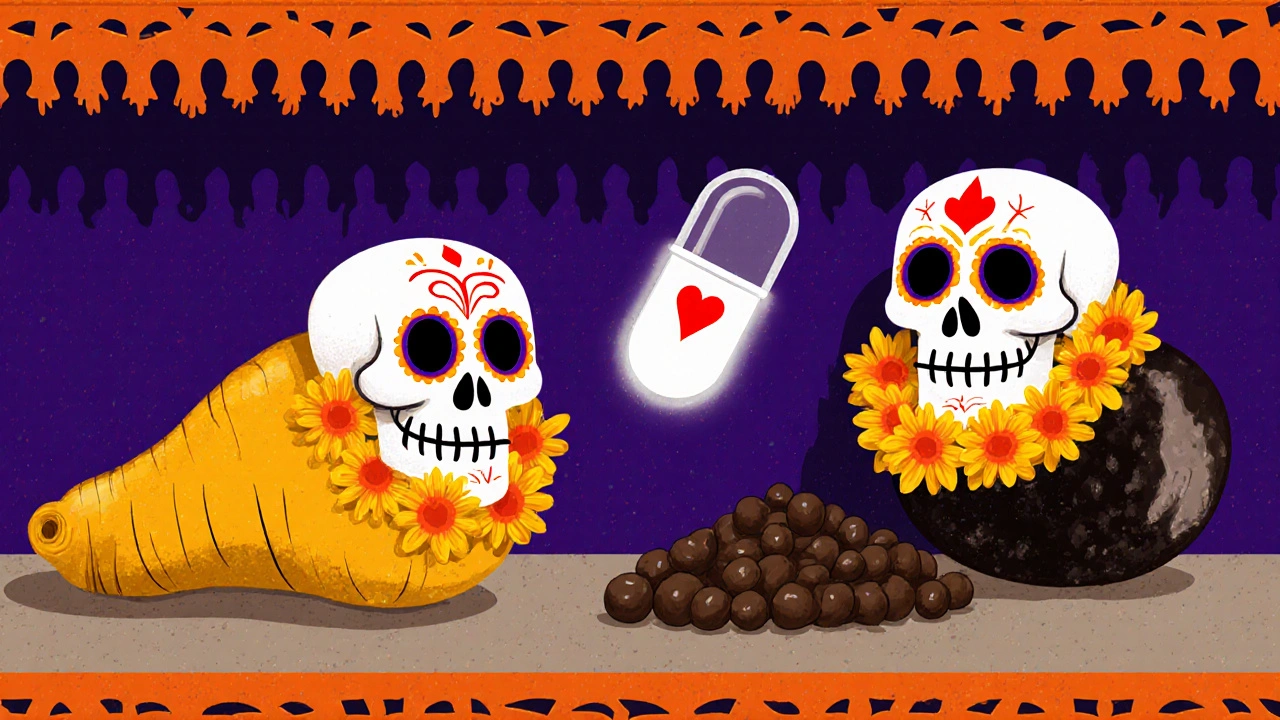Blood Thinner Supplement Warning: What You Must Know Before Taking Them
When you hear blood thinner supplement, a natural product claimed to reduce blood clot risk. Also known as natural anticoagulant, it often refers to herbs, vitamins, or extracts sold as safe alternatives to prescription drugs like warfarin or Eliquis. But here’s the truth: these supplements aren’t harmless. They can act just like real blood thinners—and mixing them with your meds could land you in the hospital.
Take garlic, a common ingredient in supplements for heart health. It’s great in food, but in pill form, it can slow blood clotting. Same with ginkgo biloba, used for memory and circulation. Studies show it increases bleeding risk during surgery. Even fish oil, often taken for triglycerides, can thin your blood at high doses. And if you’re on warfarin, vitamin K in supplements like green tea extract or kale powder can undo its effect. These aren’t myths—they’re documented risks.
People think "natural" means "safe," but that’s a dangerous myth. The FDA doesn’t test supplements the same way it tests drugs. One bottle might have the right dose. The next could be twice as strong—or contain unlisted chemicals. If you’ve had a stroke, DVT, or a heart valve replacement, you’re not just taking a pill—you’re managing a life-or-death balance. A single supplement can throw that off.
You don’t need to avoid all supplements. But you need to know which ones are risky and when to stop them. If your doctor prescribes a blood thinner, tell them every herb, vitamin, or tea you take. Even if you think it’s "just a little." That’s not being paranoid—it’s being smart. The posts below break down exactly which supplements interact with blood thinners, how much is too much, and what to do if you’re already taking them. No fluff. Just facts you can use to stay safe.
- Archer Pennington
- 9
Turmeric & Black Pepper with Blood Thinners: Risks & Safety Tips
Turmeric and black pepper supplements can drastically boost curcumin absorption, raising the risk of dangerous bleeding for anyone on blood thinners. Learn the science, guidelines, and safe practices to protect yourself.
Read more
